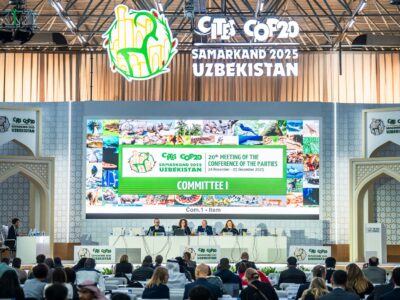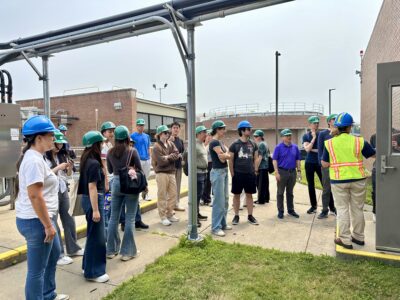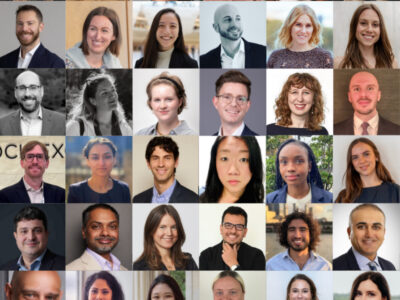
Hailing from Taiwan and Hong Kong, William Hsu — who graduated from Columbia University’s MPA program in Environmental Science and Policy (MPA-ESP) in 2019 — currently resides in New York City and works at Barclays Corporate and Investment Bank.
He started off his academic life on a pre-med, biology track. Then he took advantage of the MPA-ESP curriculum to explore the intersection of science and practical implementation. Since graduating, William has spent the last four years continuing his pursuit of different specializations in the environmental field, from public policy and energy efficiency to investment risk. He aims to bring together different fields to work toward an equitable and green future.
The former student sat down with us to answer a few questions. William is also open to conversations from prospective and current students.
What is your current job? Please describe what your duties are.
I am currently an ESG analyst with Barclays Corporate and Investment Bank. I research and publish investor-focused analysis on the material risks and opportunities related to environmental, social, and governance factors. My role is very dynamic and allows me to evaluate different asset classes, sectors, and types of projects.
Please give us a brief background of your previous work experience and educational background.
After graduating in 2019, I became an associate at the New York Energy Efficiency Cooperation, a nonprofit that provides financial products to businesses and buildings that are hoping to improve their energy efficiency or implement clean energy. I moved to CDP [a nonprofit that that helps companies and cities disclose their environmental impact] as a manager to start the Accelerator program, to help bridge public and private infrastructure interests, before assuming my current role at Barclays.
What inspired you to earn your Master of Public Administration in Environmental Science and Policy from Columbia?

I subsequently pursued a master’s degree at Arizona State University in environmental social sciences with a focus on urban planning. This led me to join the Department of City Planning with Los Angeles to work on affordable housing policies. I made the choice to pursue a second master’s degree at Columbia to pivot into financial markets and the environment.
What skills did you develop through the program? How have these translated to your professional life?
In terms of skills, the biggest takeaway within the core curriculum were the teamworking skills that are needed in collaborative research groups. I felt that the collaborative element within the program helped us understand how to work in teams with diverse backgrounds.
Additionally, my time in a financial modeling elective helped my transition into the finance industry, where I apply the same analytical skills in my everyday role.
Where would you like to see your career take you?
Despite a few career changes, my passion for the environment has always remained constant. I would like to continue exploring the flexibility provided in my current role to tackle climate change issues on a holistic scale. Continuing this current trajectory, I hope to become a thought-leader with investors to influence capital flows to support greater and more effective positive impact on the environment and people.
What advice would you give to current students?
I would recommend to anyone to continue to remain curious and flexible. It is important to ask questions; there truly is no dumb question, especially if you are talking to others from a different background. It would be helpful take advantage of the networking opportunities that are facilitated by Columbia’s extensive networks. Additionally, for international students, we must be flexible about options, whether it be job or geography to maximize our opportunities, given the additional obstacles we must overcome.



